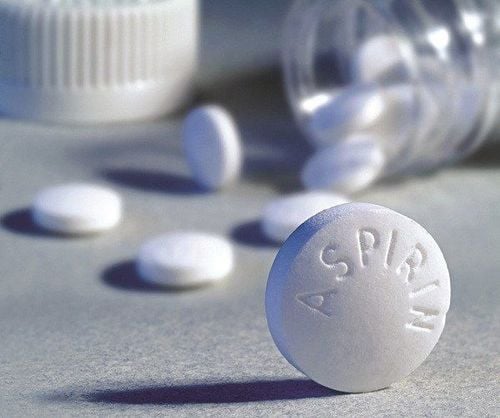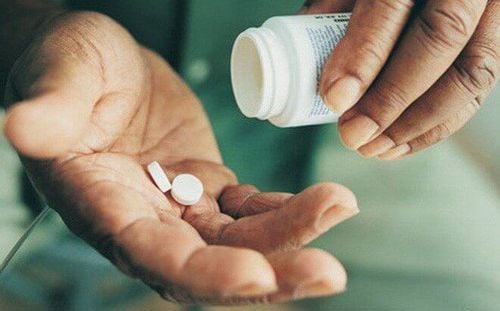This is an automatically translated article.
This article is professionally consulted by Master, Doctor Bui Ngoc Phuong Hoa - General Internal Medicine - Department of Medical Examination & Internal Medicine - Vinmec Danang International Hospital.If you suffer from frequent migraines, then you need to pay more attention to your heart health. Because studies show that people with migraines are more likely to have strokes and heart attacks. Patients must be aware of the risks and watch for early signs of heart disease or stroke.
1. Heart Disease and Stroke Linked Migraine Research
A recent Danish study published in the journal BMJ found that migraine sufferers have an increased risk of developing cardiovascular problems, including heart attack, stroke, atrial fibrillation, and heart disease. blood clot in a vein.Migraine with symptoms such as severe or throbbing pain, nausea, and sensitivity to light and sound. However, this is not the first study to link migraines and heart problems. Previous studies have shown an association between migraines and the risk of stroke and heart attack, especially in women.
In a study published in the BMJ, researchers looked at data on about 51,000 people in Denmark who had migraines and about 510,000 who didn't. People in the migraine group were diagnosed on average when they were 35 years old, and 71% of them were women. After 19 years of follow-up, the study determined that people with migraines were 1.5 times more likely to have a heart attack and twice as likely to have a stroke compared with those without headaches. In addition, people with migraines were 1.6 times more likely to form blood clots and 1.3 times more likely to have atrial fibrillation than those without migraines.
2. Some symptoms patients need to pay attention to
Stroke Doctors don't know if treating migraines reduces the risk of stroke. However, the following measures are always effective to reduce the risk of stroke:Keep blood pressure in the normal range Bring cholesterol levels into the normal range Lose weight if necessary Maintain exercise Do not smoke Go to the hospital emergency or call 911 if the person has any of these signs of a stroke, such as:
Sudden loss of vision Weak arms Slurred speech Distorted mouth

Cardiovascular disease See a doctor if a loved one or friend of yours has any of these signs of heart disease:
Chest pain Shortness of breath, fainting, dizziness Pain, numbness, weakness or coldness in the legs or arms Vibrations in the chest or abnormally slow or fast heart rate Blood clots
Heart attacks and strokes (infarcts account for 85% of strokes) are caused by blockages in blood vessels in the heart or brain, so do not It's not surprising that migraines are linked to the formation of blood clots elsewhere in the body. Studies show that women with migraines who use hormonal contraceptives are more likely to have blood clots, including deep vein thrombosis, which often forms in one of two ways. foot and may cause pain or swelling.
Therefore, if you have migraines for a long time and are using hormonal birth control, talk to your doctor to see if you are at risk of developing blood clots. If so, what can be done to reduce the likelihood of a blood clot forming and its complications.
If you experience symptoms such as migraine or stroke symptoms as mentioned above, quickly go for early stroke screening so that you can have timely treatment options. Currently, Magnetic Resonance Imaging - MRI/MRA is considered a "golden" tool to screen for brain stroke. MRI is used to check the condition of most organs in the body, especially valuable in detailed imaging of the brain or spinal nerves. Due to the good contrast and resolution, MRI images allow to detect abnormalities hidden behind bone layers that are difficult to recognize with other imaging methods. MRI can give more accurate results than X-ray techniques (except for DSA angiography) in diagnosing brain diseases, cardiovascular diseases, strokes,... Moreover, the process MRI scans do not cause the side effects seen in X-rays or computed tomography (CT).
Vinmec International General Hospital currently owns a 3.0 Tesla MRI System, which is equipped with state-of-the-art equipment by GE Healthcare (USA) with high image quality, allowing for a comprehensive assessment, without omitting the injury without leaving any damage. and reduce shooting time. Silent technology helps to reduce noise, create comfort and reduce stress for the client during the shooting process, resulting in better image quality and shorter imaging time. With the state-of-the-art MRI system With the application of modern methods of cerebral vascular intervention, a team of experienced and well-trained neurologists and radiologists, Vinmec is a prestigious address for stroke risk screening and screening. reliable goods.
In the past time; Vinmec has successfully treated many cases of stroke in a timely manner, leaving no sequelae: saving the life of a patient suffering from 2 consecutive strokes; Responding to foreign female tourists to escape the "death door" of a stroke;...
Please dial HOTLINE for more information or register for an appointment HERE. Download MyVinmec app to make appointments faster and to manage your bookings easily.
Articles refer to sources: webmd.com, livescience.com














